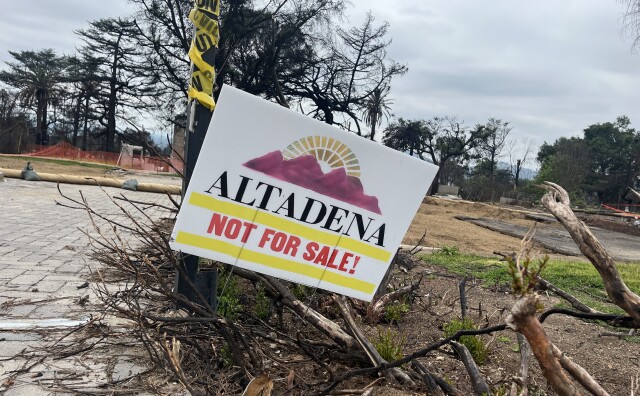Congress has cut federal funding for public media — a $3.4 million loss for LAist. We count on readers like you to protect our nonprofit newsroom. Become a monthly member and sustain local journalism.
How Should Hollywood Deal With Offensive Archival Content?

For major Hollywood studios launching streaming services, film archives are a lucrative and nostalgic selling point — but they are also home to films with problematic pasts.
Whether the films have racist, sexist, homophobic or otherwise offensive content, Hollywood is working to figure out how to deal with those assets.
Rebecca Keegan, senior film editor at The Hollywood Reporter, said some platforms have turned to advisory councils and interest groups.
“What some of the streaming services have begun to do is to put a warning label at the top of the phone when you start watching something,” she said on KPCC’s Take Two. “You would be alerted that you're going to see something here that may be offensive.”
Streaming services use original content to draw new viewers, but archival content keeps them. In 2020, almost 80% of demand on Disney+ was for older content; on HBO Max, that number is closer to 90%.
As Editor-in-Chief of our newsroom, I’m extremely proud of the work our top-notch journalists are doing here at LAist. We’re doing more hard-hitting watchdog journalism than ever before — powerful reporting on the economy, elections, climate and the homelessness crisis that is making a difference in your lives. At the same time, it’s never been more difficult to maintain a paywall-free, independent news source that informs, inspires, and engages everyone.
Simply put, we cannot do this essential work without your help. Federal funding for public media has been clawed back by Congress and that means LAist has lost $3.4 million in federal funding over the next two years. So we’re asking for your help. LAist has been there for you and we’re asking you to be here for us.
We rely on donations from readers like you to stay independent, which keeps our nonprofit newsroom strong and accountable to you.
No matter where you stand on the political spectrum, press freedom is at the core of keeping our nation free and fair. And as the landscape of free press changes, LAist will remain a voice you know and trust, but the amount of reader support we receive will help determine how strong of a newsroom we are going forward to cover the important news from our community.
Please take action today to support your trusted source for local news with a donation that makes sense for your budget.
Thank you for your generous support and believing in independent news.

-
People moving to Los Angeles are regularly baffled by the region’s refrigerator-less apartments. They’ll soon be a thing of the past.
-
Experts say students shouldn't readily forgo federal aid. But a California-only program may be a good alternative in some cases.
-
The program is for customers in communities that may not be able to afford turf removal or water-saving upgrades.
-
More than half of sales through September have been to corporate developers. Grassroots community efforts continue to work to combat the trend.
-
The bill would increase penalties for metal recyclers who possess or purchase metal used in public infrastructure.
-
The new ordinance applies to certain grocers operating in the city and has led to some self-checkout lanes to shutter.







